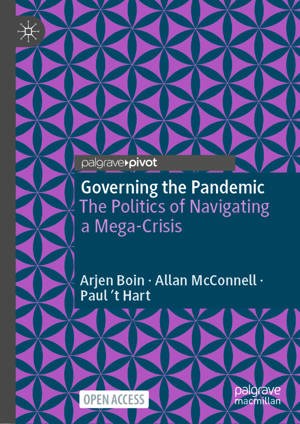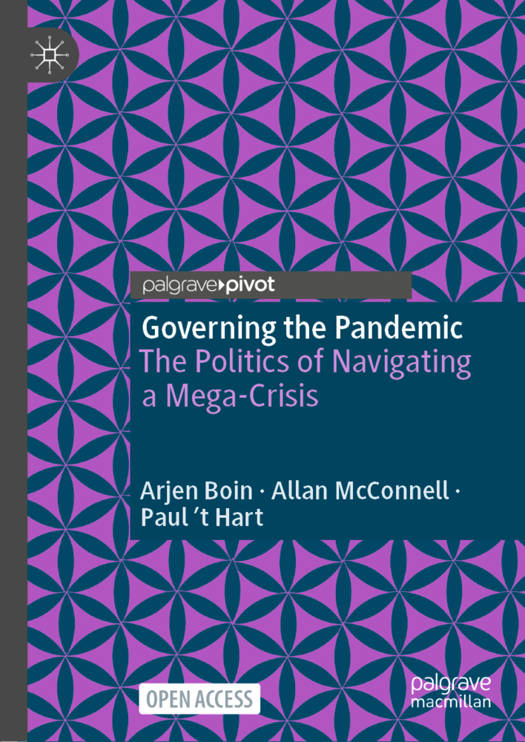
- Retrait gratuit dans votre magasin Club
- 7.000.000 titres dans notre catalogue
- Payer en toute sécurité
- Toujours un magasin près de chez vous
- Retrait gratuit dans votre magasin Club
- 7.000.0000 titres dans notre catalogue
- Payer en toute sécurité
- Toujours un magasin près de chez vous
Governing the Pandemic
The Politics of Navigating a Mega-Crisis
Arjen Boin, Allan McConnell, Paul 't HartDescription
This open access book offers unique insights into how governments and governing systems, particularly in advanced economies, have responded to the immense challenges of managing the coronavirus pandemic and the ensuing disease COVID-19. Written by three eminent scholars in the field of the politics and policy of crisis management, it offers a unique 'bird's eye' view of the immense logistical and political challenges of addressing a worst-case scenario that would prove the ultimate stress test for societies, governments, governing institutions and political leaders. It examines how governments and governing systems have (i) made sense of emerging transboundary threats that have spilled across health, economic, political and social systems (ii) mobilised systems of governance and often fearful and sceptical citizens (iii) crafted narratives amid high uncertainty about the virus and its impact and (iv) are working towards closure and a return to 'normal' when things can never quite bethe same again. The book also offers the building blocks of pathways to future resilience. Succeeding and failing in all these realms is tied in with governance structures, experts, trust, leadership capabilities and political ideologies. The book appeals to anyone seeking to understand 'what's going on?', but particularly academics and students across multiple disciplines, journalists, public officials, politicians, non-governmental organisations and citizen groups.
Spécifications
Parties prenantes
- Auteur(s) :
- Editeur:
Contenu
- Nombre de pages :
- 130
- Langue:
- Anglais
Caractéristiques
- EAN:
- 9783030726799
- Date de parution :
- 11-05-21
- Format:
- Livre relié
- Format numérique:
- Genaaid
- Dimensions :
- 148 mm x 210 mm
- Poids :
- 322 g

Les avis
Nous publions uniquement les avis qui respectent les conditions requises. Consultez nos conditions pour les avis.






